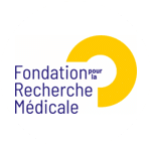

Mission & Vision
Since 1975, by adopting a multidisciplinary approach, Fondation pour la Recherche Médicale (FRM), a French State-approved foundation, encourages, selects and finances the most promising research projects across all diseases: cancer, neurological, psychiatric, cardiovascular, infectious or rare diseases… Convinced of the importance of fundamental research, the breeding ground for all medical innovation, FRM supports projects of excellence.
Through its educational activities, FRM provides the general public with insight into the advances and challenges of medical research.
Actions led
Since its creation, FRM has multiplied the discoveries that have changed the lives of French people and revolutionized the care of patients, such as the implantation of the first total artificial heart in France by Professor Christian Cabrol in 1986, or confirmation in 2000 by Professors Pierre Pollak and Alim-Louis Benabid that cerebral stimulation was effective to treat severe forms of Parkinson’s disease. Very recently, the team of Professors Rochigneux and Olive have shown that it is possible to predict in which patients immunotherapy will be most effective in treating lung cancer, by using a simple blood test.
Furthermore, to respond to new challenges emerging across the world (increase in environment-related diseases, aging of the population, etc.) and to generate progress, FRM has decided to increase the impact of its support for research on 4 priority areas: 1/ Neurodegenerative diseases 2/ The impact of the environment on health 3/ Restorative medicine 4/ Covid 19 and future emerging viruses.
Projects that U.S. Donors can Support
Each year, FRM supports more than 400 new research projects conducted in the laboratories of French public research bodies and higher education (INSERM, CNRS, INRA, CEA, Universities, etc.).
With their contributions, US donors can support such scientific research projects in France.
(c) Julie Bourges
